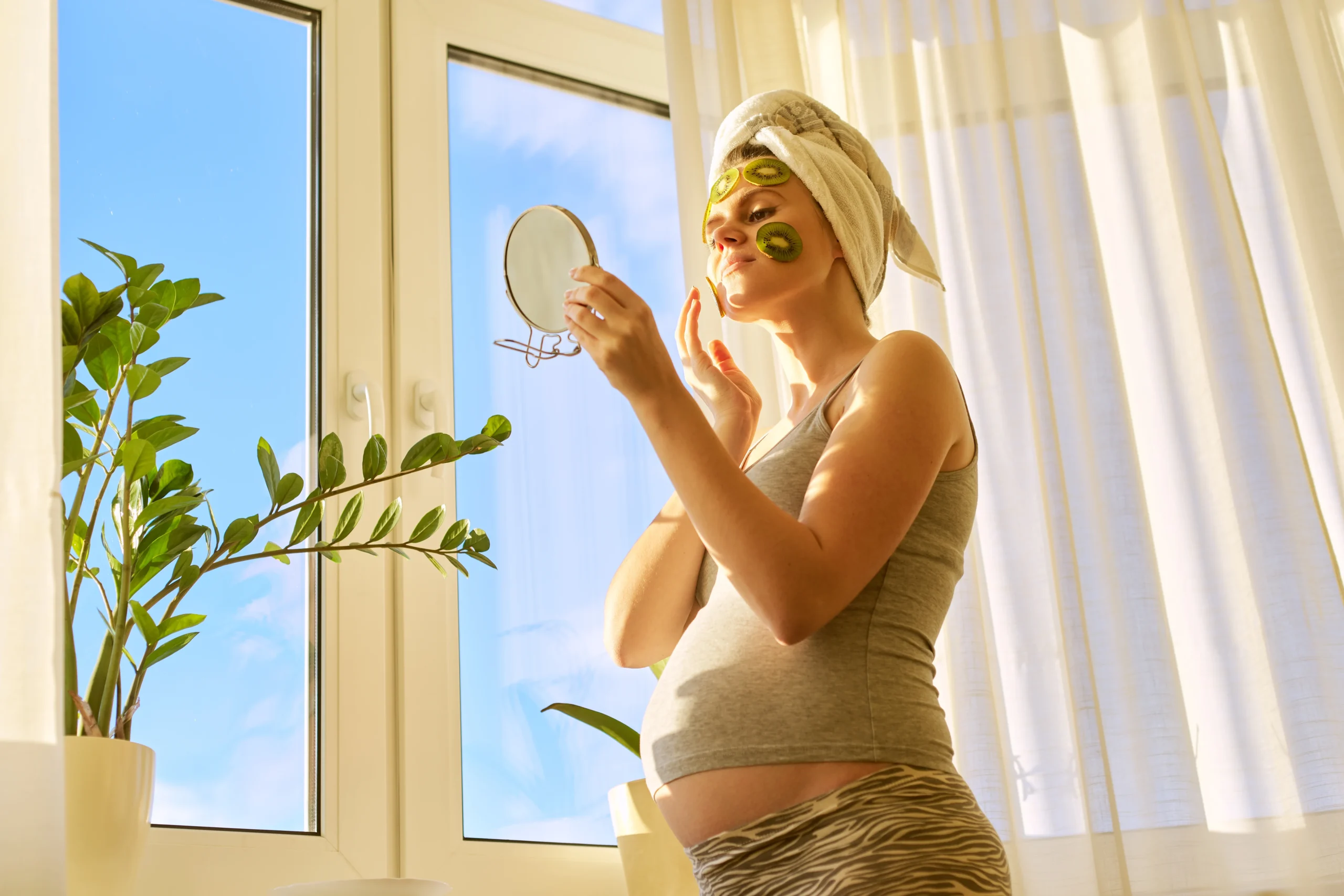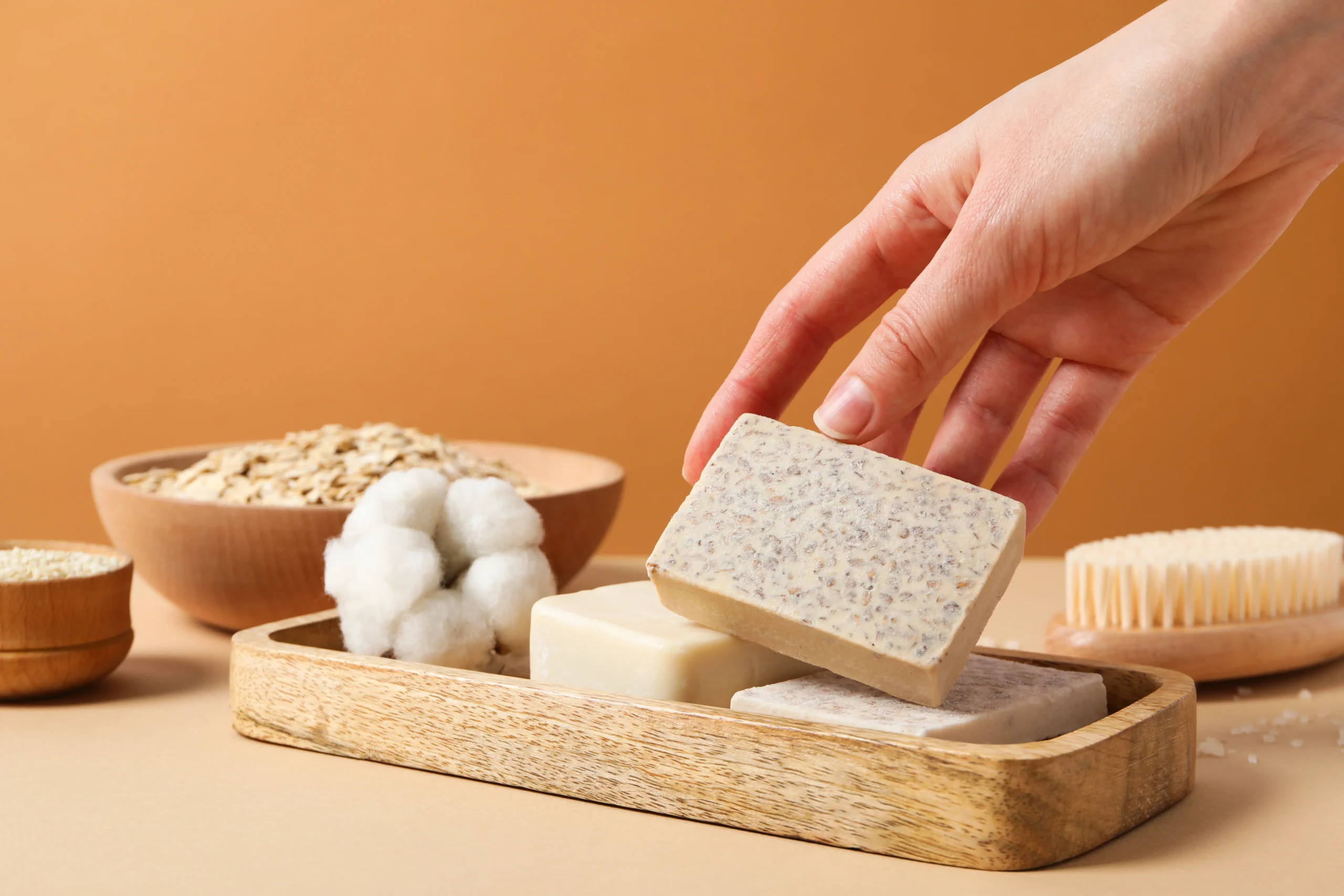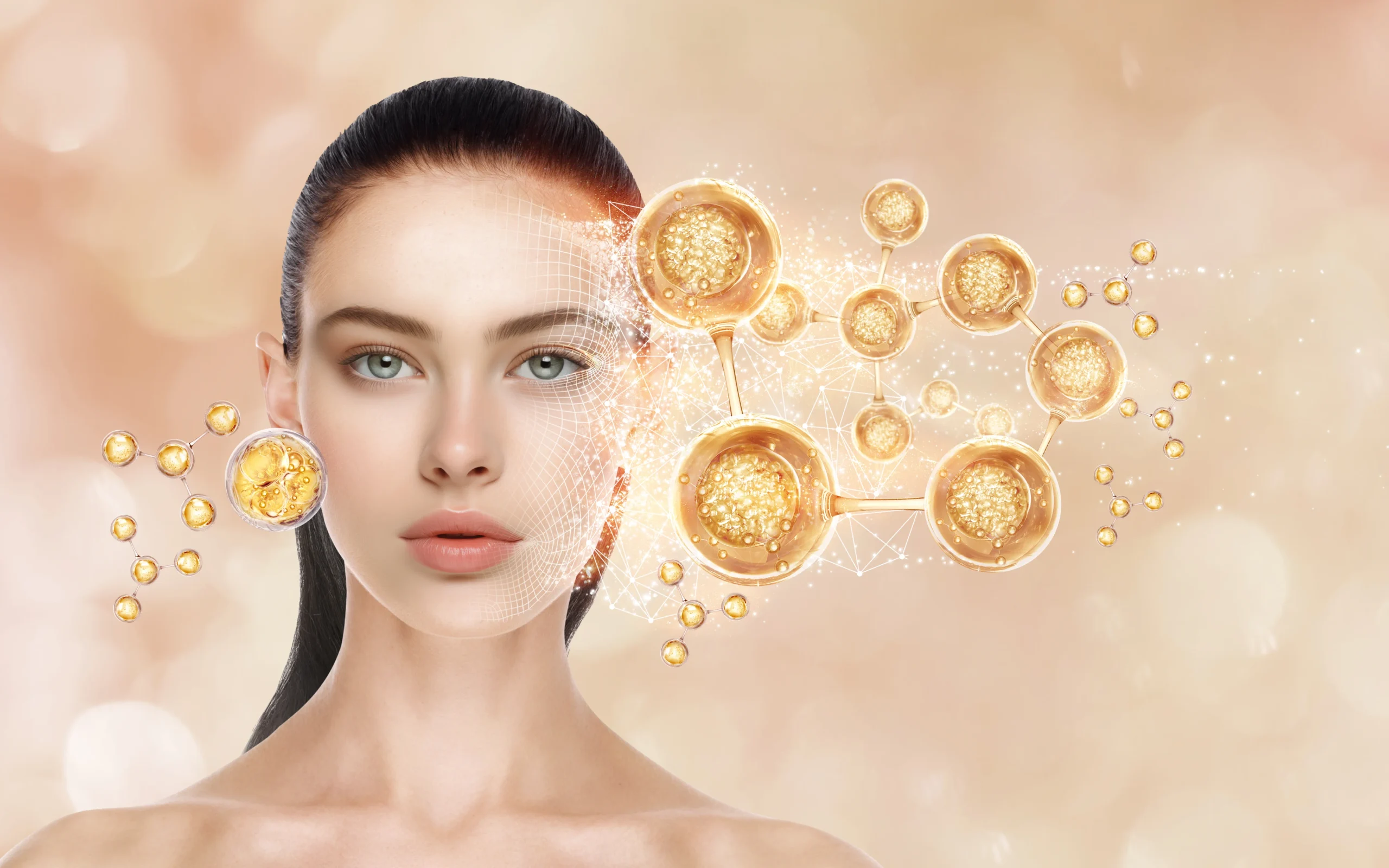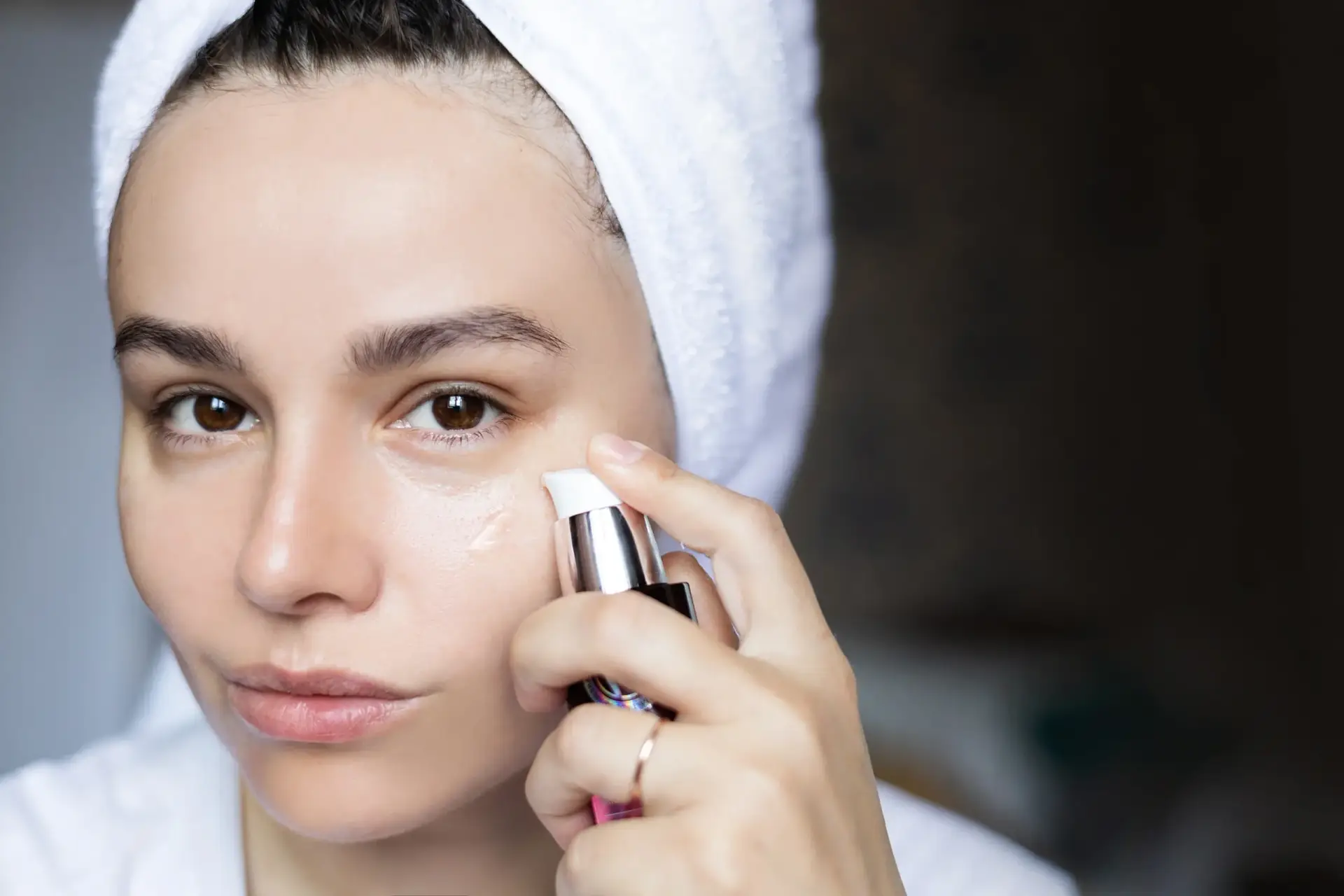Understanding The Best Facial Care During Pregnancy
The best face care for pregnancy starts with understanding the changes a woman’s skin experiences during these nine months. Hormonal surges can cause sensitivity, acne, and dryness. As a result of these changes, cosmetic or skin care products used before pregnancy may no longer be suitable. Therefore, a new approach is needed that is safe for mother and baby and keeps the skin healthy and radiant.
Why Does Skin Change During Pregnancy?
During pregnancy, estrogen and progesterone hormone levels increase, which can cause excess oil production or dryness of the skin. Sometimes, dark spots known as “melasma” or the “mask of pregnancy” appear on the face. Some women may also experience broken blood vessels or increased sensitivity to sunlight. Understanding these changes can help you choose the proper skin care regimen.
Safe Ingredients for The Best Facial Care During Pregnancy
Safety is paramount when it comes to skin care during pregnancy. Hyaluronic acid, niacinamide, vitamin C, and ceramides are safe and effective ingredients to use during pregnancy. They keep the skin moisturized, firm, and radiant without causing harm. Also, natural oils like almond or jojoba gently nourish the skin and do not cause any adverse effects.
Ingredients to Avoid During Pregnancy
Not all ingredients are safe during pregnancy. Retinoids, high salicylic acid, hydroquinone, and benzoyl peroxide should be avoided, as they can be harmful. Instead, it is better to use natural and dermatologist-approved alternatives. It is safest to consult a doctor if in doubt.

Best Face Care for Pregnancy Through Daily Cleansing
The best face care for pregnancy starts with a gentle and regular cleansing routine. Skin is more sensitive during this time, so cleansers containing sulfates or artificial fragrances can irritate it. Proper cleansing maintains skin balance and removes dirt for subsequent care. Hormonal fluctuations can cause many people’s skin to become excessively oily or excessively dry, so choosing the right cleanser is crucial. A fragrance-free and gentle cleanser removes dirt and excess oil while keeping the skin’s natural defenses intact.
Choosing a Gentle Cleanser
Pregnancy-safe cleansers generally avoid parabens, phthalates, and artificial colors. Cream-based cleansers or micellar water moisturize the skin and remove dirt without drying it out. Those who experience acne during pregnancy can use a mild lactic acid cleanser. Dermatologists often recommend using a pH-balanced cleanser, which protects the skin’s microbiome and reduces irritation.
How Often Should You Wash Your Face?
Washing your face too often can dry out your skin and cause excess oil production, while washing too little can clog pores and cause acne. It’s best to wash your face twice daily, morning and night. It is essential to cleanse your face at night, as it removes sunscreen, dust, pollution, and everything else from the day. Use lukewarm water instead of hot water; hot water can irritate the skin.
Best Facial Care During Pregnancy With Moisturizer
Regular moisturizing is essential for the best facial skin during pregnancy, as hormonal changes make it difficult for the skin to retain moisture. A good moisturizer strengthens the skin’s protective layer, prevents dryness, and restores its natural glow. Many pregnant women experience itching, flaking, or tightness, which can be reduced by using a nourishing cream. Using a moisturizer twice a day keeps the skin soft.
Benefits of Hydration for Pregnant Mothers
Adequate moisture keeps skin healthy, smooth, and comfortable. Dehydration can lead to fine lines, sensitivity, and dullness. A good moisturizer locks in moisturizers rich in glycerin or squalane, intensely hydrating the skin.
Ingredients In Moisturizers That Are Safe During Pregnancy
Hyaluronic acid, shea butter, aloe vera, and oat extract are safe ingredients in moisturizers during pregnancy. These soothe the skin and provide deep nourishment. However, retinol or synthetic chemicals should be avoided. Light gel creams are best for oily skin, and nourishing creams are best for dry skin. It is always safer to choose a fragrance-free product.
Best Face Care for Pregnancy With Sun Protection
Sun protection is essential for the best face care during pregnancy. During this time, the sun becomes more sensitive to sun damage, increasing the risk of melasma. It is essential to use sunscreen daily. It protects the skin from premature aging, blemishes, and harmful rays. Sunscreen should be used even on cloudy days, as UV rays can still damage the skin.
Safe Sunscreen During Pregnancy
Dermatologists recommend using mineral-based sunscreen during pregnancy. Sunscreens containing zinc oxide or titanium dioxide create a protective layer on the skin and are safer than chemical sunscreens. They are also suitable for sensitive skin. Tinted mineral sunscreens even out skin tone, eliminating the need for heavy foundation.
Reapply Sunscreen for Long-Lasting Protection
Reapplying sunscreen is essential for skin protection. When outdoors, sunscreen should be reapplied every two hours. Powder sunscreen or spray is an easy solution for those who wear makeup. Many people don’t use sunscreen indoors, but the sun’s rays come through windows. Regular use of sunscreen prevents melasma and keeps the skin looking young and radiant.
Best Face Care for Pregnancy: Exfoliation
Gentle exfoliation is essential for the best face care during pregnancy, as the skin’s renewal process slows, leaving the skin looking dull. However, skin becomes more sensitive during pregnancy, so strong scrubs or acids can cause redness and irritation. The goal of exfoliation during this time is to gently remove dead skin cells, leaving the skin smooth and radiant without causing any damage.

Gentle Exfoliant That Helps With Skin Renewal
Expectant mothers should choose gentle exfoliants like lactic acid, which is safe and naturally derived from milk. It brightens and smooths the skin without penetrating deeply. Enzyme exfoliants derived from papaya or pineapple also gently break down dead skin cells and cleanse the skin. It is best to avoid coarse-grained scrubs, as they can cause microtears. Instead, using soft powders or enzyme-based products is much more beneficial.
How Often Should You Exfoliate During Pregnancy?
Exfoliating two to three times a week is satisfactory for pregnant women. Over-exfoliation can weaken the skin’s natural defenses and increase acne. Exfoliating with a rich moisturizer at night allows the skin to rebuild and absorb moisture overnight. Those with acne can exfoliate in specific areas rather than the entire face.
Face Care to Prevent Hormonal Acne During Pregnancy
Hormonal acne control is one of the best face care tips during pregnancy. Hormonal fluctuations usually cause acne on the chin or cheeks. Women who are not pregnant can use retinoids or benzoyl peroxide, but these are not safe during pregnancy. Therefore, it is better to use safer ingredients as an alternative, which reduce inflammation and prevent clogged pores.
Natural Solutions That Are Safe and Effective
Aloe vera gel, diluted tea tree oil, and alcohol-free witch hazel help reduce acne redness and swelling. Kaolin or bentonite clay masks absorb excess oil and gently remove dirt. Green tea extract reduces inflammation and fights acne-causing bacteria. These natural solutions work slowly but are safe and balanced in the long run.
Dermatologist-Approved Treatment
Dermatologists often recommend using azelaic acid to control acne during pregnancy, as it is safe and effective. It reduces inflammation and lightens acne scars. Sulfur-based treatments can be used for severe acne. It is best to consult a dermatologist for a safe solution if necessary.
Nutrition and Skin Care During Pregnancy
The best face care for pregnancy doesn’t just depend on external products, but also on diet, which is directly linked to skin health. A balanced diet provides vitamins and minerals, which increase skin elasticity, moisture, and natural radiance.
Foods That Help Skin Glowing
Fruits like berries, oranges, and kiwi provide vitamin C, which helps build collagen and reduce blemishes. Vegetables like spinach and kale provide iron and folate, which keep the skin fresh by providing oxygen to the blood. Nuts, seeds, and avocados provide omega-3 fatty acids, which reduce skin dryness. Legumes help control blood sugar levels, reducing the risk of acne.
The Importance of Water
Drinking enough water is the simplest yet most effective beauty treatment. It flushes out toxins from the body, increases skin elasticity, and controls oil production. Pregnant women should drink enough water throughout the day to avoid dullness caused by dehydration. Doctor-approved herbal teas like chamomile or rooibos also soothe the body and skin.

Face Care Through Mental Health During Pregnancy
The best face care for pregnancy is also related to mental well-being. Stress can disrupt hormonal balance and increase acne, redness, or dryness.
How Stress Affects The Skin
The stress hormone cortisol increases oil production and inflammation, leading to acne, redness, or dryness. Chronic stress disrupts sleep and slows down the skin’s repair process.
Relaxation Techniques to Enhance Skin Radiance
Light prenatal yoga, meditation, and deep breathing exercises regulate and increase blood circulation, resulting in glowing skin. Regular walking increases the body’s oxygen supply and refreshes the skin. A warm bath with pregnancy-safe oils or a home facial helps with mental peace and skin care. Listening to music, writing books, or keeping a diary also provides mental peace and positively affects the skin.
Nighttime Face Care for Pregnancy
The most effective time for face care during pregnancy is at night. While you sleep, your skin naturally starts to heal and repair the damage of the day. Nighttime skincare routines nourish your skin, lock moisture, and help reduce the effects of hormonal changes.
Nighttime Skincare Routine for Pregnant Women
A safe and straightforward night care routine can include cleansing with a gentle face wash, using a light toner, applying a hydrating serum with hyaluronic acid, and applying a rich moisturizer. Those with melasma or blemishes can use a vitamin C serum, but ensure it is free of alcohol or irritants. Natural Oils like almond or rosehip oil can also be used lightly to help lock in moisture for longer. Overnight masks with herbal ingredients like chamomile or calendula can soothe the skin and reduce inflammation.
The Importance of Adequate Sleep for The Skin
Sleep is often called a “natural beauty treatment.” It becomes even more critical during pregnancy. During deep sleep, blood flow increases, collagen is repaired, and cell turnover is accelerated. Not getting enough sleep can lead to dullness, puffiness, or dark circles. Light exercise, a caffeine-free hot drink, or lavender scent before bed can help promote a deeper, more restful sleep.
Check Out More Beauty and Makeup Articles Here

Final Thoughts on Best Face Care for Pregnancy
Best face care for pregnancy means a combination of safe skincare habits, conscious eating habits, and peace of mind. The skin needs extra care as the body undergoes profound physical changes. Gentle face washes, moisture-retaining moisturizers, mineral sunscreens, and natural exfoliants can help protect skin health without risk. Pregnancy-safe treatments for issues like care or blemishes bring balance. At the same time, proper nutrition and stress reduction brighten the skin from within. Facial care during pregnancy makes every woman feel confident, safe, and naturally radiant on this special journey.








